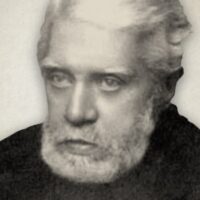
Article 29 – Conclusion
Articles Of The Faith And Order Of A Primitive Or Strict And Particular Baptist Church Of The Lord Jesus Christ, Based On The Declaration Of Faith And Practice Of John Gill, D. D., 1720
XXIX. Conclusion.
All and each of these doctrines and ordinances we consider ourselves under the greatest obligation to embrace, maintain, and defend; believing it to be our duty and privilege to “stand fast in one spirit, with one mind, striving together for the faith of the gospel.”
And whereas we are very sensible that our “conversation,” both in the Church and in the World, ought to be “as becometh the gospel of Christ,” we judge it our incumbent duty to “walk in wisdom towards them that are without and to exercise a conscience void of offence towards God and man, by living, “soberly, righteously, and godly in this present world.”
And as regards our conduct to each other in our Church communion, we esteem it our duty and our privilege to walk with each other in all humility and brotherly love; to watch each other’s conversation; to stir up one another to love and good works; not forsaking the assembling of ourselves together, but as we have opportunity, to worship God according to His revealed will; and when the case requires, to warn, rebuke, and admonish one another, according to the rules of the Gospel.
Moreover, we think ourselves obliged to sympathise with each other, in all conditions, both inward and outward, into which God, in His providence, may bring us; as also to bear with each other’s weaknesses, failings, and infirmities; and particularly to pray for, and with one another, that the Gospel and the ordinances thereof, may be blessed to the edification and comfort of our souls, and for the accomplishment of the number of God’s elect all which duties and privileges we desire to be found in the performance of, through the gracious assistance of the Holy Spirit; whilst we admire and adore the grace which has given us “a place and a name in God’s house better than that of sons and daughters.”
The End.
Annotations:
This resume of the duties and privileges of a Gospel Church is, with a few verbal alterations, identical with the closing paragraphs of the Declaration of the Faith and Practice of the Church of Christ at Horsleydown, under the pastoral care of Dr. Gill, and entered by him in the Church Book in 1720. On this also the foregoing Articles are mainly based.
Dr. Gill’s Declaration was designed to take the place of the Church Covenant, printed for the use of the Church, in 1697, by its then Pastor, Benjamin Keach. This, it is probable, was in substance identical with the one which was formerly read publicly before the Lord’s Supper at the admission of Christians to the Membership of Particular Baptist Churches, and is still used at New Street Chapel, St. Neot’s, Hunts. the person to be received is as follows:—
If you, Brother, [or Sister] now in the awful presence of God and the Lord Jesus Christ, and in the presence of His holy angels, and in the presence of His people and all others who are here present, do give up yourself unto the Lord and unto us His people, by the will of God, solemnly promising and engaging in the aforesaid awful presence, to walk with God, and us, His Church and people, as the Lord shall enable and en lighten you, signify the same by holding up your right hand to the Lord.
We likewise, in the aforesaid awful presence, do receive you into our Communion, solemnly engaging to behave towards you as a Church of Christ, watching over you in the Lord.
In testimony hereof, we give you the right hand of Fellow ship, wishing your coming into this Church may be attended with blessing both to us and to you.
William Styles (1842-1914) was a Strict and Particular Baptist preacher. He served as pastor for the churches meeting at High Wycomb (2 years); Lower Holloway (3 years); Providence, Islington; Keppel Street (10 years); West Ham (4 years); West Hill, Wandsworth (6 years). After his conversion to Christ while sitting under the ministry of the Congregationalists, he was baptized by C. H. Spurgeon and became a member of the Metropolitan Tabernacle. During this time, he enrolled in the Pastors’ School. He eventually embraced high views of sovereign grace and strict communion principles, thereby leading him to join the Strict and Particular Baptist denomination. He was an outspoken opponent of the pernicious teachings of duty-faith and the free-offer, believing that no church, minister or member had a right to identify as “Strict and Particular Baptists” if holding to those errors. He took a leading role in the Metropolitan Association of Strict Baptist Churches and was a supporter of the Strict Baptist Mission. Both of these organizations now embrace the errors of duty-faith and the free-offer, standing opposed to the faith and order of the Strict and Particular Baptists.
William Styles, A Guide To Church Fellowship (Complete)
William Styles, A Memoir of John Hazelton (Complete)




